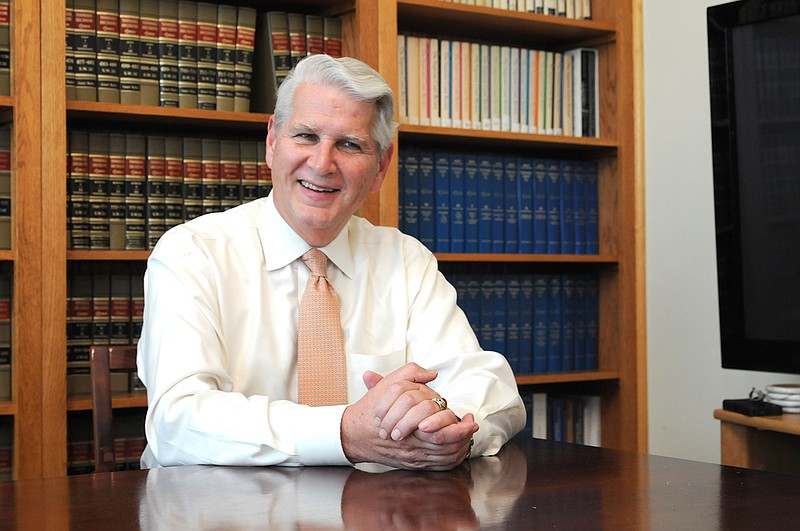NASHVILLE - The upcoming retirement of Justice Gary Wade from the Tennessee Supreme Court only one year into his new eight-year term gives Gov. Bill Haslam a chance to name a Republican successor - and thus a GOP majority on the court - but confusion reigned Monday over when Tennesseans will get to vote on the new judge: in 2016 or 2022.
Before voters agreed in November to amend the Tennessee Constitution, the answer was clear: the governor's appointee to a vacancy on the state Supreme Court, the Court of Appeals or the Court of Criminal Appeals would appear on the ballot at the next statewide August election for a "retain" or "replace" vote by the public. The appointee could serve no more than two years without a direct public vote.
But the ratification of Amendment 2 altered the judicial selection process and now opponents say the new wording is vague and confusing regarding the timing of retention elections for appointees filling court vacancies. The amendment also added a legislative confirmation requirement, meaning that the governor's appointee cannot take the seat, hear cases and participate in decisions until after the Legislature reconvenes in January unless a rare special session is called before that.
The governor's office said Monday that "It's unclear at this time" when a retention election will occur.
"We anticipate the General Assembly will address the question when they reconvene early next year," said Laura Herzog, the governor's deputy director of communications.
State Sen. Brian Kelsey, R-Germantown, was the chief legislative drafter of last year's amendment. He said in an email Monday that Wade's successor will not be subject to a retention election until the eight-year term ends in 2022. That would give the successor nearly seven years on the state's high court bench without a direct vote by Tennesseans.
But at least twice before last November's constitutional referendum, Kelsey publicly said an appointee filling a vacancy on the court would face a retention vote at the next August statewide election.
Wade said last week he will retire effective Sept. 8. He told the Knoxville News Sentinel on Sunday that he is considering an offer to become dean of Lincoln Memorial University's law school in Knoxville and that his response was due Monday.
Wade did not return calls Monday but LMU issued a statement saying Wade would be "an ideal dean candidate at any law school in the nation."
LMU spokeswoman Kate Reagan said she doesn't "anticipate us being able to announce anything until next week because most of our law school faculty are at a national legal education conference in Florida."
John Avery Emison, a Crockett County resident who helped run a campaign against the judicial amendment last year, said Monday he hopes the "governor will make the right decision" and declare that his appointee is subject to a retention election in August 2016.
Emison cited an Oct. 11 email from prominent Nashville lawyer Lee Barfield, in response to Emison's questions to Haslam about retention elections for appointees filling judicial vacancies if Amendment 2 passed.
Barfield, who played a lead role in the campaign supporting the amendment, said in that email: " If Amendment 2 is adopted by the voters, a person appointed by the governor to fill a vacancy must stand for retention election by the voters at the next biennial election unless the vacancy occurred less than 30 days prior to the biennial election in which case the judge will face a retention election in the second biennial election after the vacancy occurred."
Contact Richard Locker at richard.locker.knoxnews.com or 615-255-4923.
